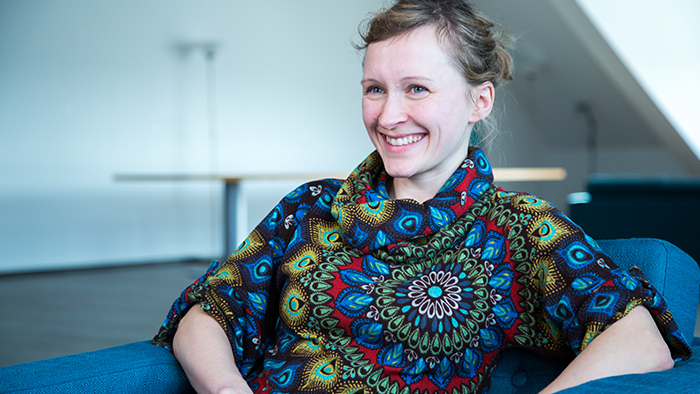How long should you practice a new language every day? We sat down with one of our linguistics experts here at Babbel to find out why our app gets you speaking a new language in only 20 minutes of study per day.

Karoline Schnur, linguistics expert at Babbel
As you might expect in a language learning company, almost everyone who works at Babbel is multilingual. I say almost because I’m not one of them (yet). Like many native English speakers, my attempts to learn a second language in school were in vain. I have now reached an intermediate conversational level in German, but it’s nothing compared to my international colleagues. Every day I hear people walking around the office speaking dozens of different languages, code switching in conversations with different colleagues, and translating their funny idioms into English. But even among the serial language learners at Babbel, you’ll never find someone pouring over French 101 textbooks, cramming themselves to fluency.
That’s because the central principle of the Babbel language learning approach is that people should spend about 20 minutes per day studying a new language. This is surprisingly short compared to the length of time university students are expected to study a language nightly (~90 minutes). So how are people at Babbel picking up new languages even though they’re putting in less time than I spent cramming Spanish verb conjugation in high school? I sat down with one of Babbel’s linguistic experts, Karoline Schnur, to find out how 20 minutes of learning per day is all you need to become proficient in a new language.
The Babbel Approach
Karoline started off by explaining the central principle behind the Babbel learning approach: “If you read a lot of information, you won’t be able to absorb everything. We call this information overload or cognitive overload.” She explained that the brain is a master at deciding what information in our daily lives is important and what is background noise. This background information is tossed out, and never makes it into our long-term memory. Great for guiding our day-to-day lives, but not so great for language learning.
Karoline was also keen to dispel the myths about cramming, or binge learning: “This is when you have a big test coming up so you sit down and try to learn everything that you need to know. But how much do you remember after a week? Probably not that much.” Instead of worrying about trying to do a lot all at once, it’s actually more important to repeat a smaller portion of information more frequently. She continued, “To get something into long term memory, you must make connections and repeat it. Repetition is really important in language learning.”
Fortunately, the Babbel App was specifically designed with the limitations of human memory in mind. Twenty minutes corresponds well with the principle of “chunking” in psychology — our brains work best at absorbing around seven new things at a time. As Karoline explained, “If you think about the capacity of your brain to digest around seven chunks of new information, the time is a clear limit. From our Babbel perspective, you could start with repetition: you repeat 10 items and you need less than 5 minutes for that. Then you can do a new lesson, which takes about 15 minutes. Now you have your 20 minutes.”
So maybe afterall I could get my French past basic High School level?? :) I haven't tried the app, but the method you describe sounds like a good one. And the software I've always come across is Rosetta Stone, so it's good to know that there are competitors out there.
Downvoting a post can decrease pending rewards and make it less visible. Common reasons:
Submit